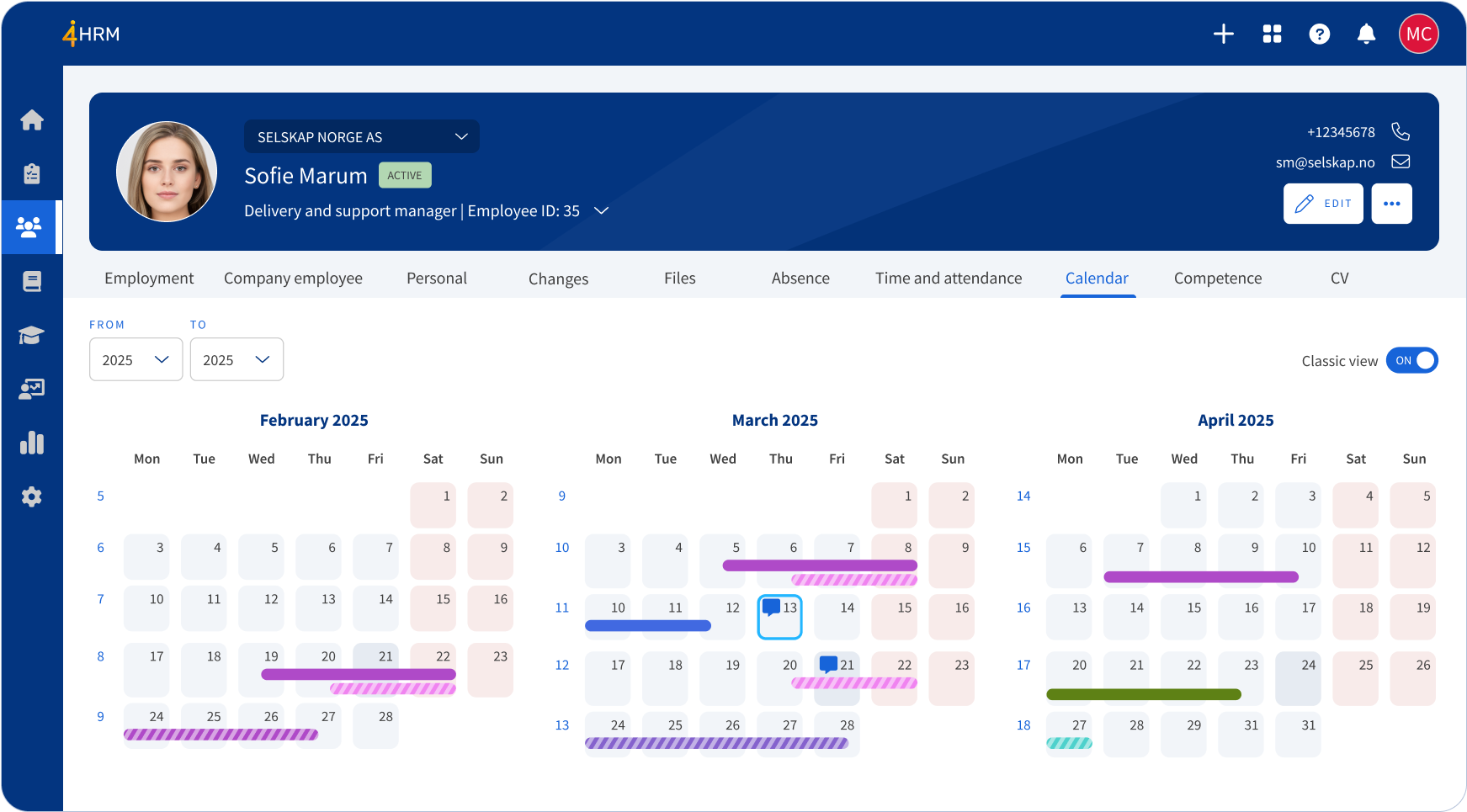Perhaps the end of the year is approaching faster than you're ready for? Now is the time for you, as a manager, to make sure you're in control of your employees' vacation schedules.
If your employees are owed vacation days, you need to clarify with them whether these should be discontinued before the end of the year or whether they should be carried over to the next year.
Both the employer and the employee are responsible for ensuring that all holiday is taken. As a manager, you are responsible for ensuring that this is done. You must obtain a good overview of your employees' remaining vacation days and, if necessary, agree on the settlement of the remaining days.
In principle, employees must settle all their vacation days during the vacation year.
There are, however, two different situations in which holiday under the Holiday Act can be transferred from one year to another:
- Transfer by agreement
- Transfer of unused vacation
Transfer by agreement
It can be agreed that up to 2 weeks (12 working days) of holiday can be transferred to the next year or taken in advance. It cannot be agreed to transfer holiday from one year to another beyond this, and remember that agreements on the transfer of holiday must be made in writing.
Transfer of holiday that cannot be taken in the holiday year
If the employee is unable to take all the holiday due to sickness absence or parental leave during the holiday year, the unused holiday days shall be transferred in their entirety to the next year.
The contractual vacation days can be transferred or paid out. This only applies to the days in the 5th vacation week that many companies have in addition to the statutory 4 weeks + 1 day of vacation.
Employee's right to object to taking vacation
In principle, employees do not have the right to object to taking vacation, unless the accrued vacation pay is not sufficient to cover the loss of pay during the vacation.
This can be the case in the following situations:
- Employee has not worked the entire earning year and therefore does not have full accrual
- The employee has had a salary increase since the earning year
- The employee has been laid off, ill, unemployed or similar, and has received benefits from NAV in the accrual year. As a general rule, such benefits are not included in the holiday pay basis.
Staffing
It is of course important that you have a good overview of staffing during holiday periods, and 4human's HR System with staff follow-up and absence calendar is a very useful tool for this.



